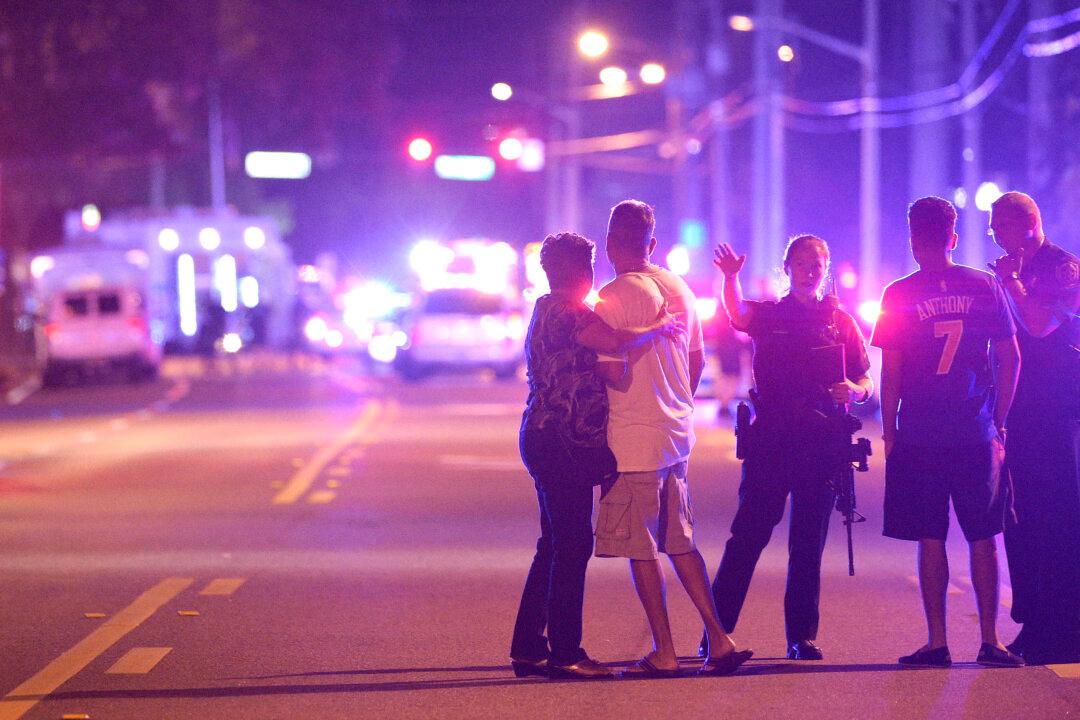ORLANDO, Fla.—Shot in the leg and lying in a mix of blood and water on a bathroom floor, Patience Carter heard gunman Omar Mateen dial 911 from just a few feet away. The American-born son of an Afghan immigrant, Mateen told the person on the other end he wanted America to stop bombing his country, she recalled.
“We knew what his motive was. He wasn’t going to stop killing people until he was killed,” she said Tuesday during a riveting hospital news conference.
Now, investigators are trying to figure out what led to Mateen’s murderous rampage in a gay dance club where patrons say they knew him as just another regular who danced and sometimes tried to pick up men.
A number of possible explanations and motives for the bloodbath have emerged, with the Muslim Mateen professing allegiance to the Islamic State group in a 911 call during the attack, his ex-wife saying he was mentally ill and his father suggesting he was driven by hatred of gays.
The investigation into an attack that left Mateen and 49 victims dead includes a look at his current spouse. An official who was briefed on the case but insisted on anonymity to discuss a continuing investigation said authorities believe Mateen’s wife knew about the plot ahead of time, but they are reluctant to charge her on that basis alone.
On Tuesday, a U.S. official said the FBI was looking into a flurry of news reports quoting patrons of the Pulse as saying Mateen frequented the nightspot and reached out to men on gay dating apps. The official was not authorized to discuss the investigation and spoke on condition of anonymity.
Some psychologists raised the possibility that Mateen was sexually conflicted and that those feelings might have contributed to his lashing out against gays.
“People who are struggling to come to terms with their sexual identity do at times react to that by doing the exact opposite, which could be to become more masculine or more vocal about their ideals of a traditional family,” said Michael Newcomb, a Northwestern University psychologist.
The attack early Sunday ended with Mateen being shot to death by a SWAT team. Of the 53 people wounded, six were listed in critical condition Tuesday and five others were in guarded condition.
At a news conference at Orlando Regional Medical Center, Carter described praying to die as she lay on a nightclub bathroom floor covered in water and blood.
“I really don’t think I’m going to get out of there,” Carter, 20, recalled. “I made peace with God. ‘Just please take me. I don’t want any more.’ I was just begging God to take the soul out my body.”





